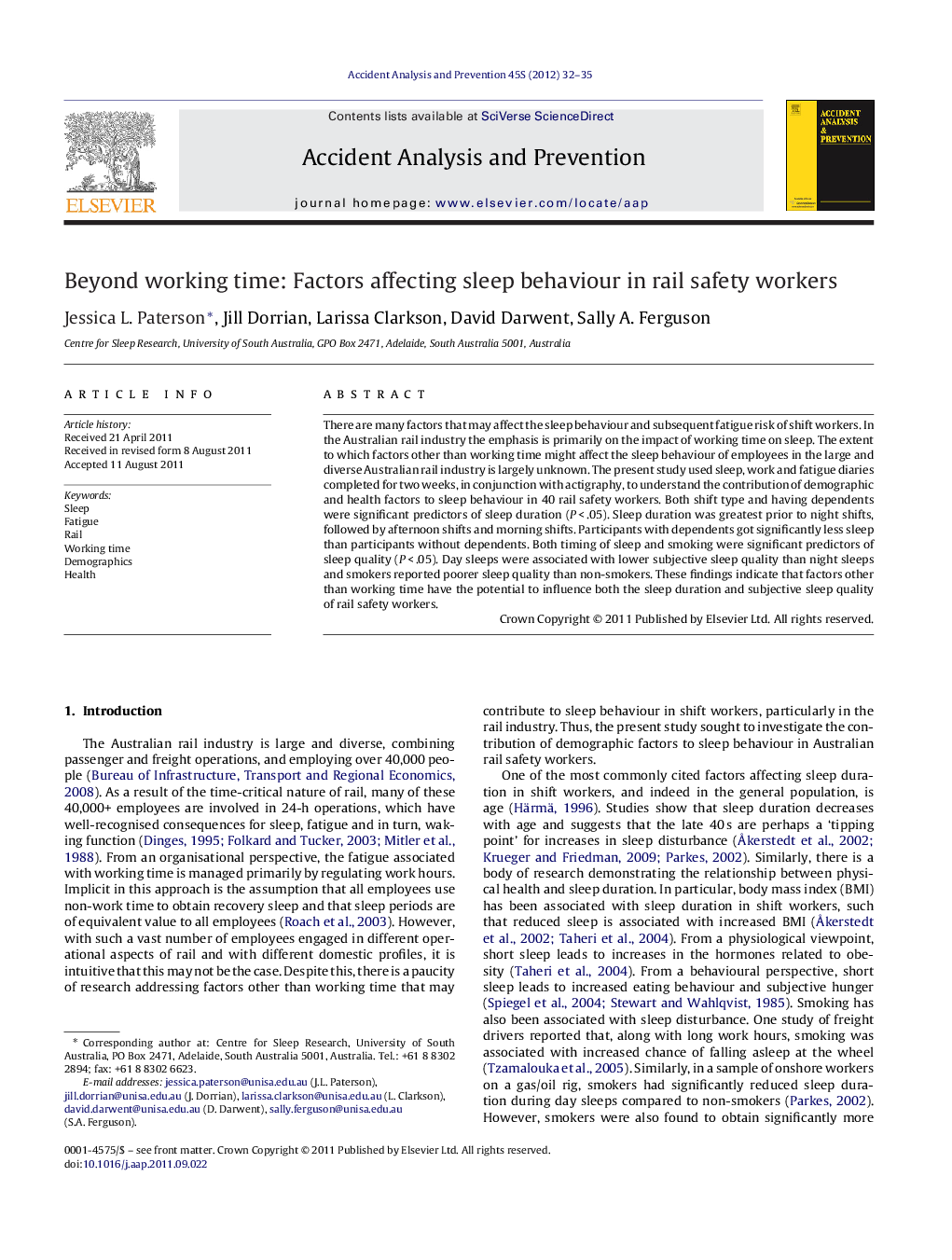| Article ID | Journal | Published Year | Pages | File Type |
|---|---|---|---|---|
| 572903 | Accident Analysis & Prevention | 2012 | 4 Pages |
There are many factors that may affect the sleep behaviour and subsequent fatigue risk of shift workers. In the Australian rail industry the emphasis is primarily on the impact of working time on sleep. The extent to which factors other than working time might affect the sleep behaviour of employees in the large and diverse Australian rail industry is largely unknown. The present study used sleep, work and fatigue diaries completed for two weeks, in conjunction with actigraphy, to understand the contribution of demographic and health factors to sleep behaviour in 40 rail safety workers. Both shift type and having dependents were significant predictors of sleep duration (P < .05). Sleep duration was greatest prior to night shifts, followed by afternoon shifts and morning shifts. Participants with dependents got significantly less sleep than participants without dependents. Both timing of sleep and smoking were significant predictors of sleep quality (P < .05). Day sleeps were associated with lower subjective sleep quality than night sleeps and smokers reported poorer sleep quality than non-smokers. These findings indicate that factors other than working time have the potential to influence both the sleep duration and subjective sleep quality of rail safety workers.
► Workers with dependents report shorter sleep than workers without dependents. ► Smokers report reduced subjective sleep quality, compared to non-smokers. ► Rail safety workers use prophylactic napping prior to night shifts.
